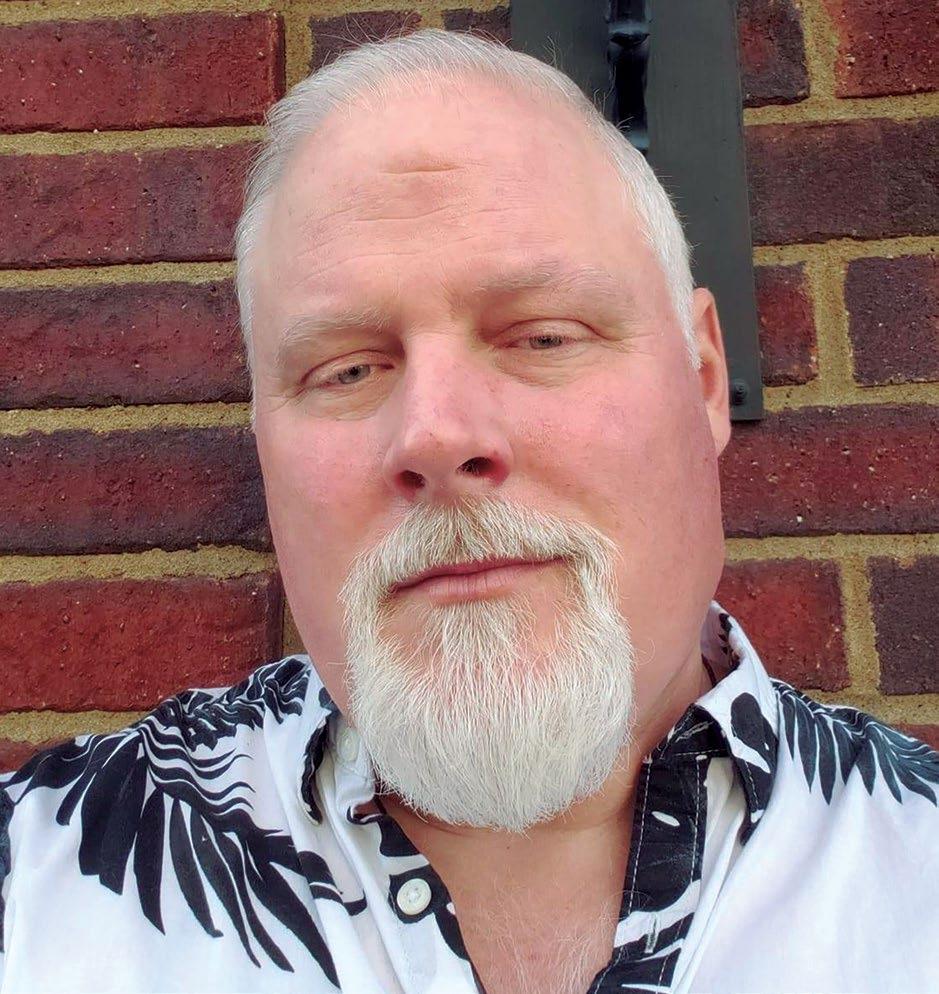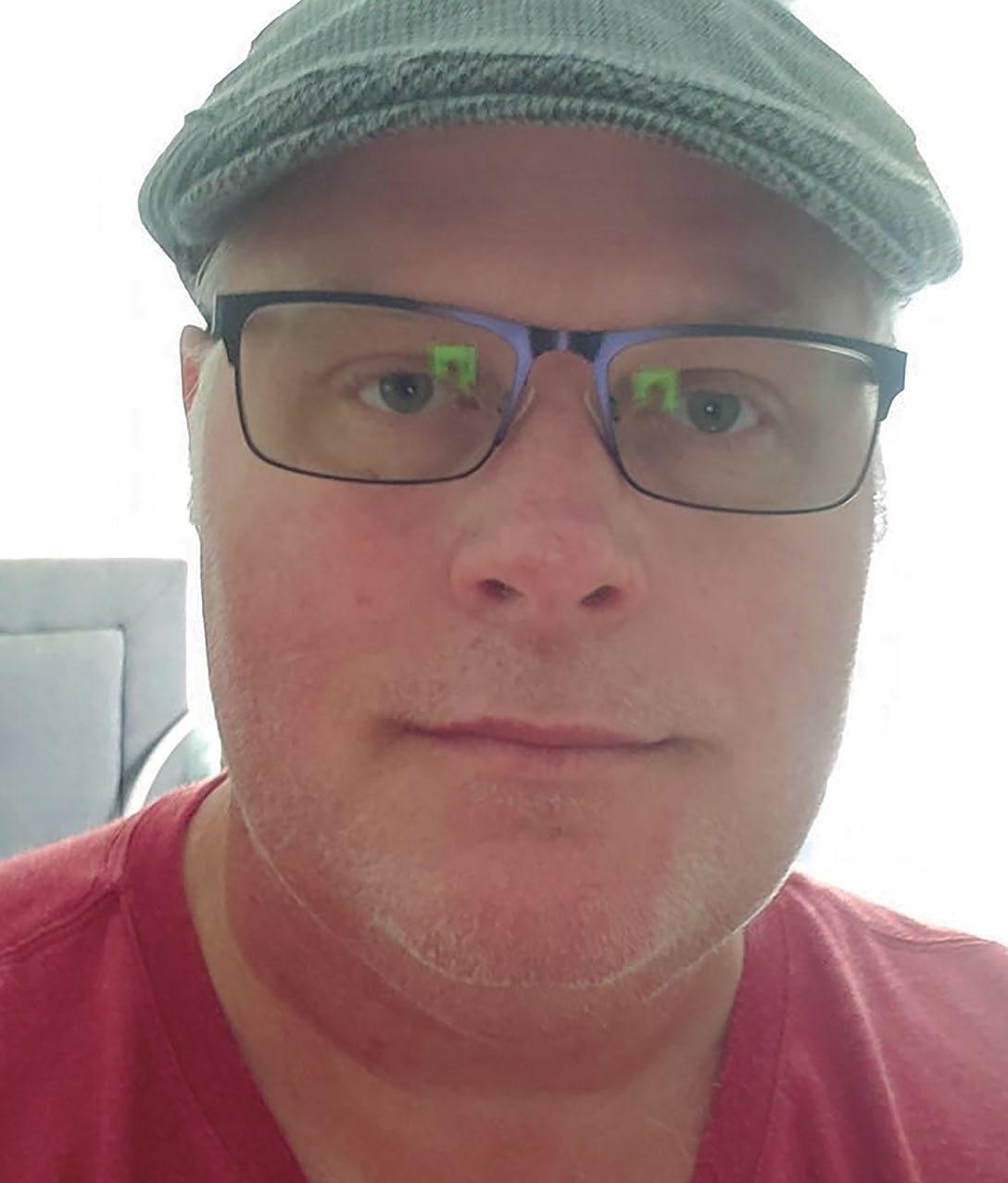
3 minute read
JONATHON CURTO RECOVERS FROM DEADLY CORONAVIRUS, URGES PUBLIC TO PRACTICE SAFETY MEASURES

Brian Sullivan
Advertisement
Jonathon Curto, 50, wants the LGBTQ+ community to know that COVID-19 is not something to take lightly. Early on the morning of April 16, Curto said, he woke up at his home in Nashville with chills, problems breathing and a temperature of 104.8 degrees. As someone who suffers from asthma, Type 2 diabetes and high blood pressure, he felt he needed to go to the hospital.
“I had been having issues the past few days and I honestly thought it was the asthma at first,” Curto said. He had similar health issues one month earlier and tested positive for the flu. Curto said his medical team at Skyline feared it could be something worse. The next day, he tested positive for COVID-19. “They started me on IV antibiotics, but my breathing difficulties got worse and worse,” Curto said. “That night was eight straight hours of violent, non-stop coughing.” Not long after that, he was moved from a regular bed to the hospital’s intensive care unit. Curto said he was placed on a high pressure vent at 90 percent oxygen to help him breath—if that didn’t work, he’d need to be intubated. The medical team also started him on Hydroxychloroquine in pill form. “Prior to each time the Hydroxychloroquine is administered, the medical team is required to do an EKG to make sure your heart is in good condition to receive the drug,” Curto said. “They did that every time.” Still, he got worse. Then, came a ray of hope. Curto’s doctor explained to him that he might be a good candidate for a convalescent plasma transfusion—a process by which plasma from a donor who recovered from COVID-19 would be injected into his bloodstream, and with it antibodies and proteins developed in the donor’s body during the time they had the virus in their system. Curto said he received the plasma through IV one night around 11:30 p.m. Within a day or two, doctors lowered his oxygen levels and he started to feel better. Medical staff monitored him for two more days and then released him from the hospital on May 4.
Since then, he said he has received daily calls from contact tracers with the Tennessee Department of Health checking on him. He had originally planned to quarantine for fourteen days, but because he experienced two different types of pneumonia during his recovery after the hospital, he decided to take extra precaution and quarantine longer. The CDC recommends isolation for a minimum of fourteen days after exposure to COVID-19. Curto, because of his other illnesses, is taking double that time. He says he is still seeing a pulmonologist, and recently returned for a CT scan of his lungs. He has not yet received the results of that test.
“When I was diagnosed, part of me almost couldn’t believe it, but I also felt devastated,” Curto said. “The worst part, though, was that night of the non-stop violent coughing for eight hours.” After being in the hospital eighteen days, fourteen of which were spent in ICU, Curto said he was relieved to go home to his dog Max, his cat Simon, and his fish. “I tried to focus on God and recovery, and trusting that He was going to get me better,” Curto said. “I tried not to think about the potential things that could happen with this, like dying. The loneliness is horrible. The only people you can see are the staff caring for you.” Now a COVID-19 survivor, Curto wants the public to know the coronavirus is not something to be taken lightly.
“I sometimes get infuriated when I see people being so cavalier, not wearing masks, not social distancing,” Curto said. “I think a lot of people have gotten complacent. They think ‘We’ve been dealing with this for a couple of months and I haven’t gotten it, so I feel safe’. It doesn’t matter if you’re old or young. Thank God I lived, but there are people as young as twenty-one and in perfect health, and they are dying.” Curto says he understands people wanting a return to normal life, but adds that “returning to normal” will never happen if we don’t deal with the crisis properly, now. This article has been supported by a grant from the Facebook Journalism Project for COVID-19 coverage.









